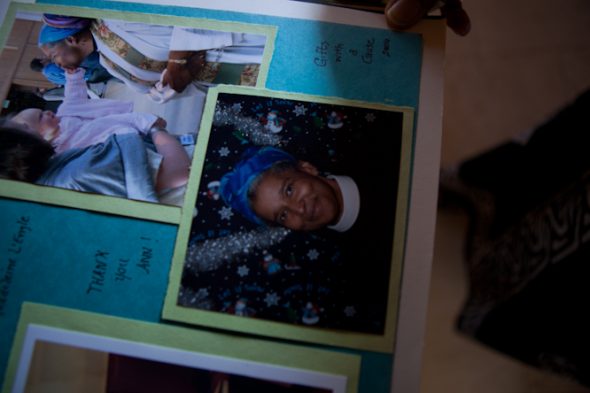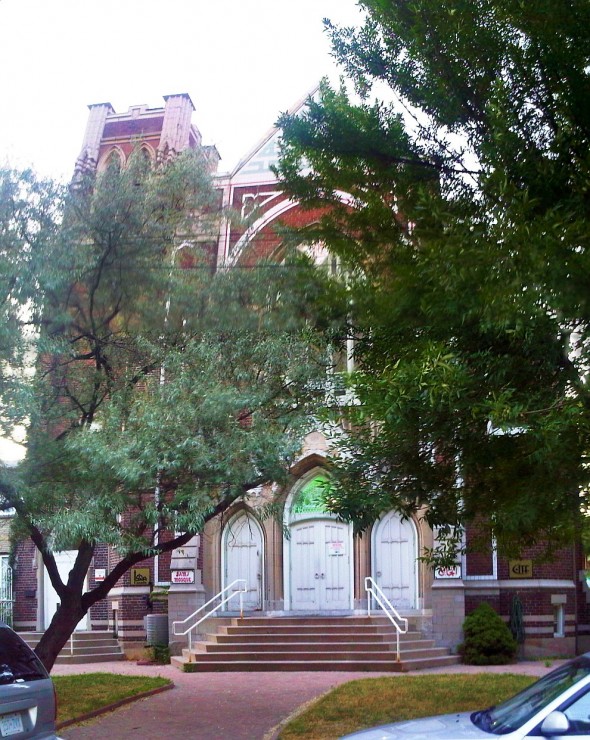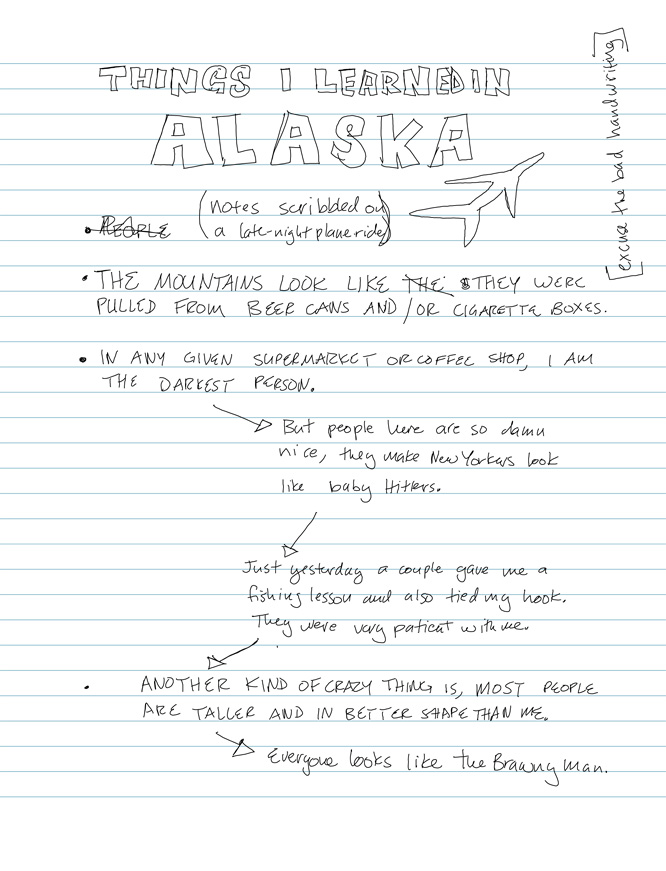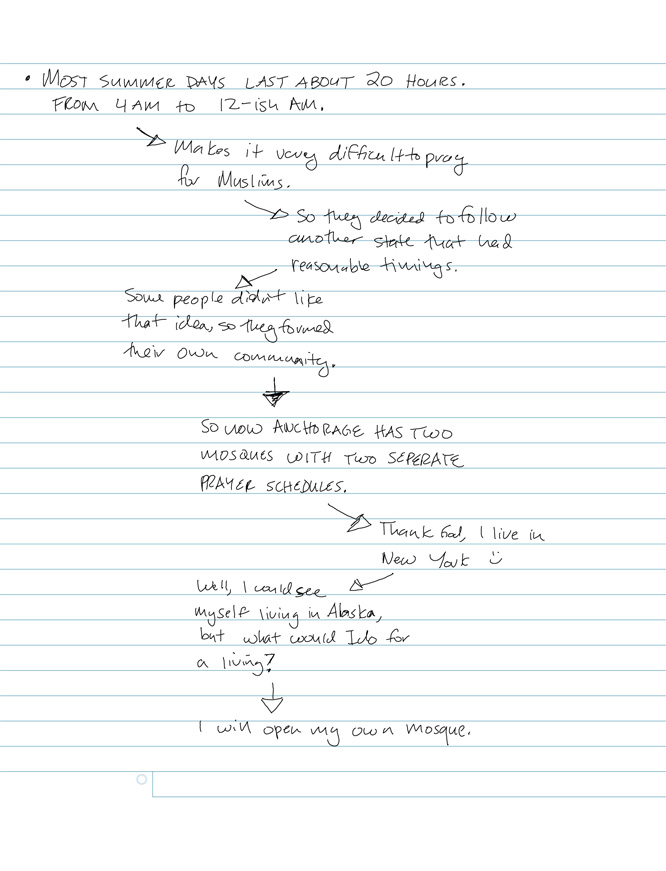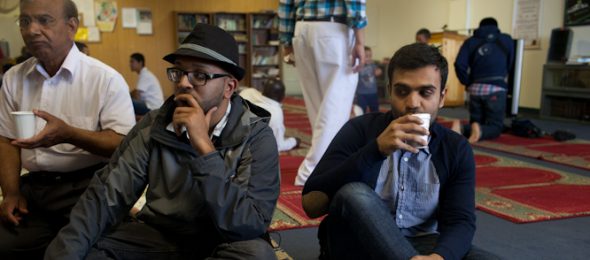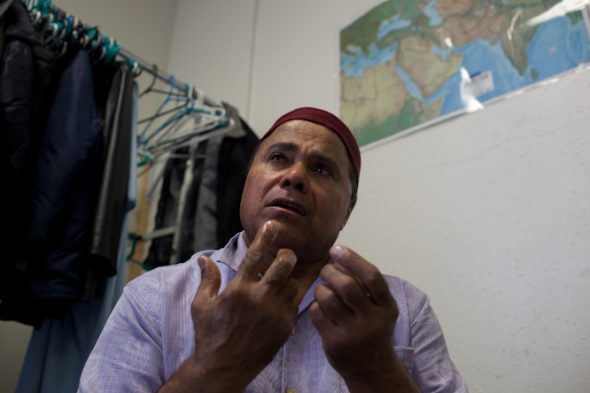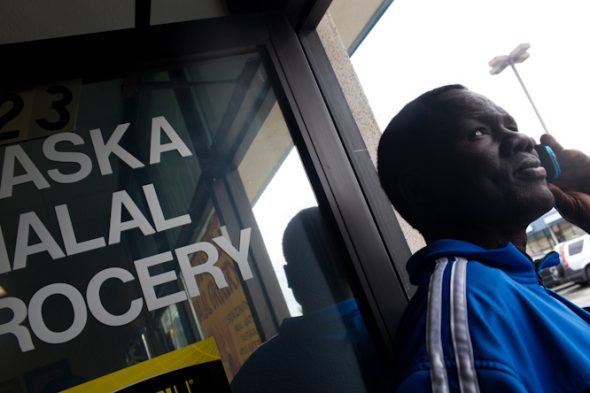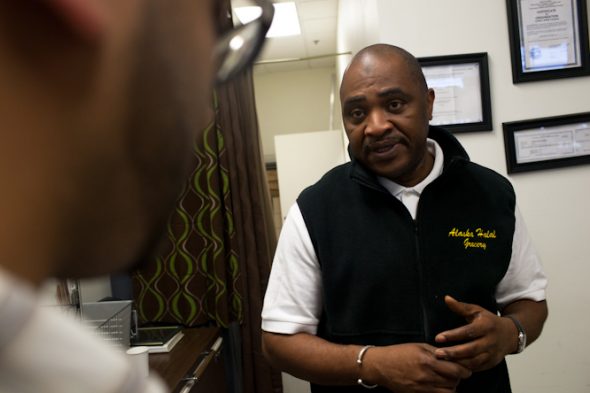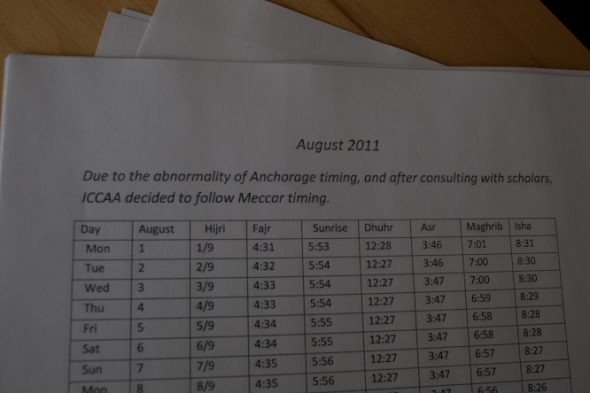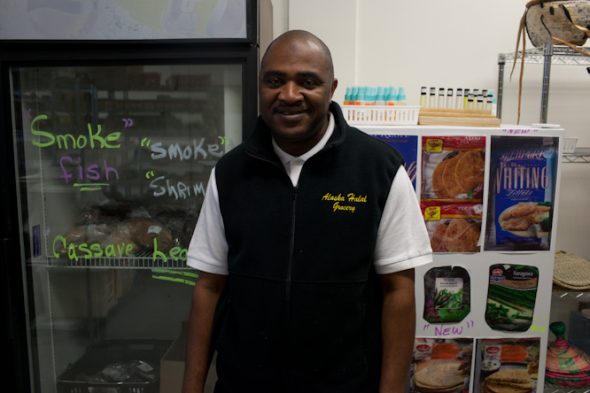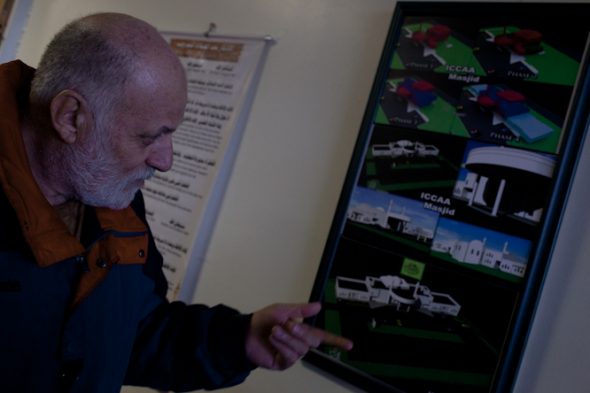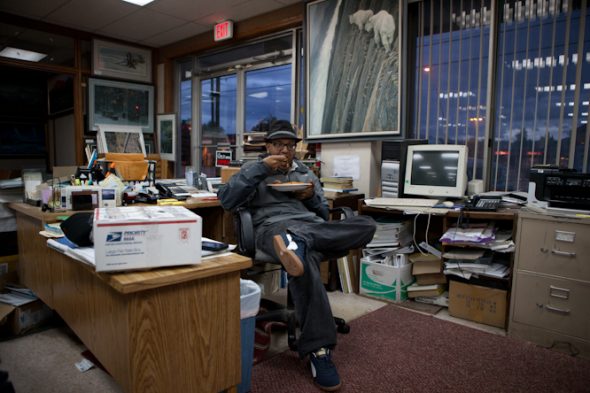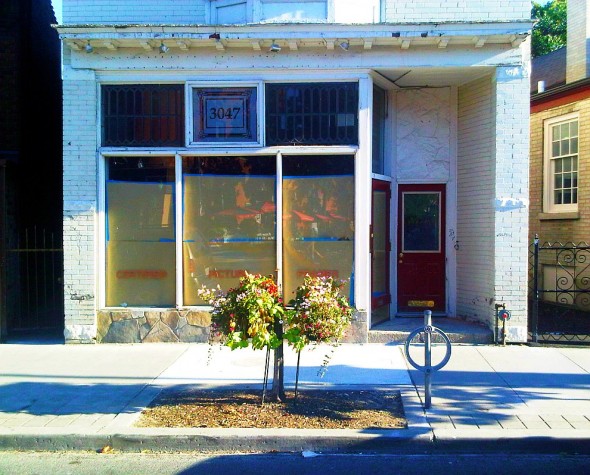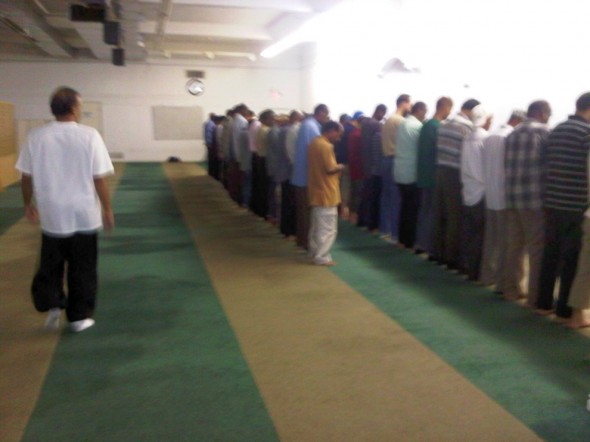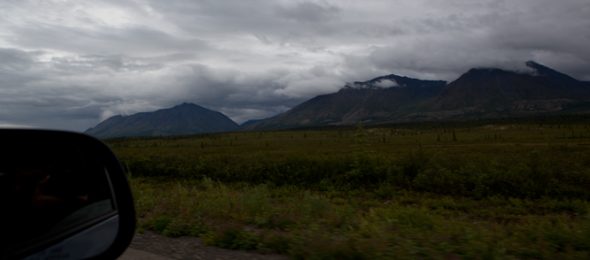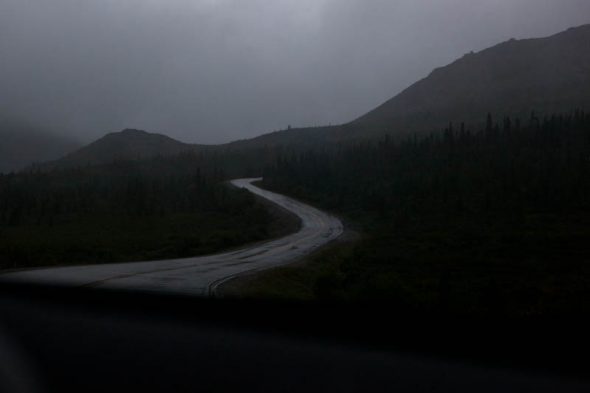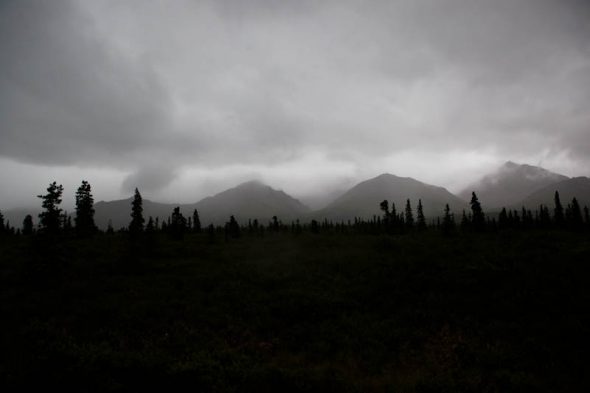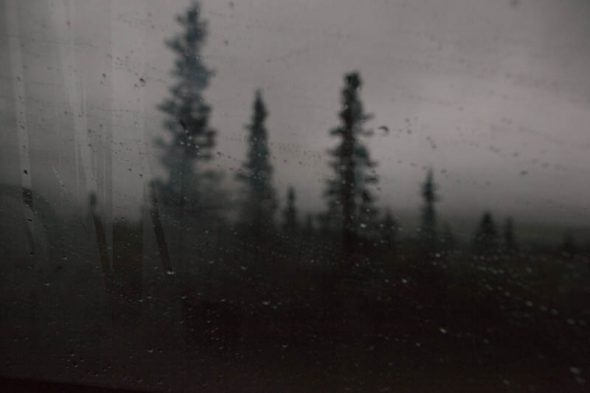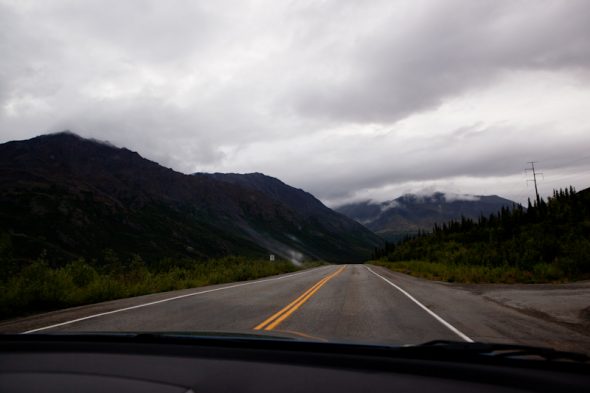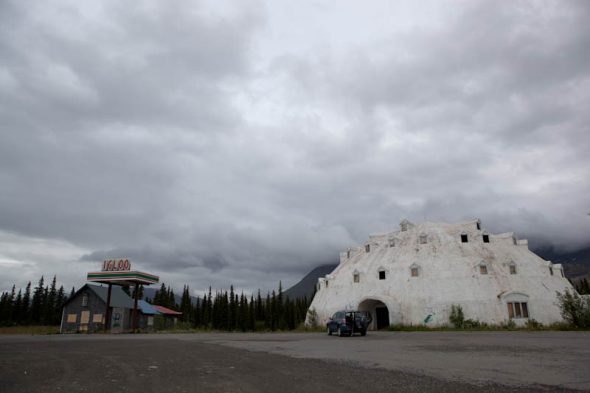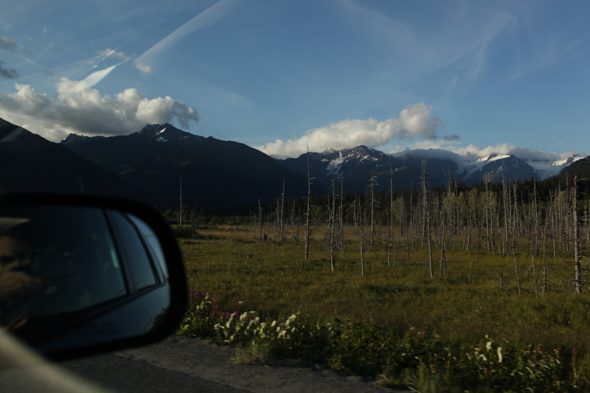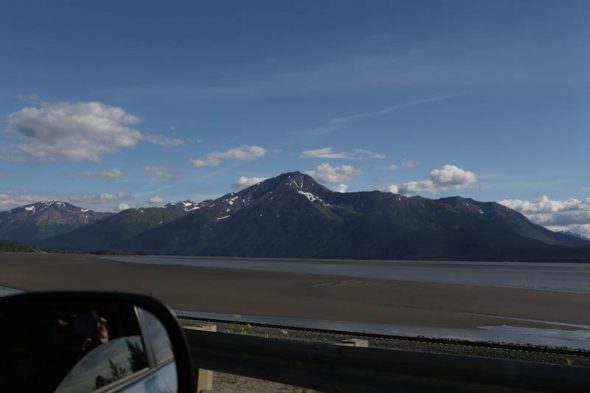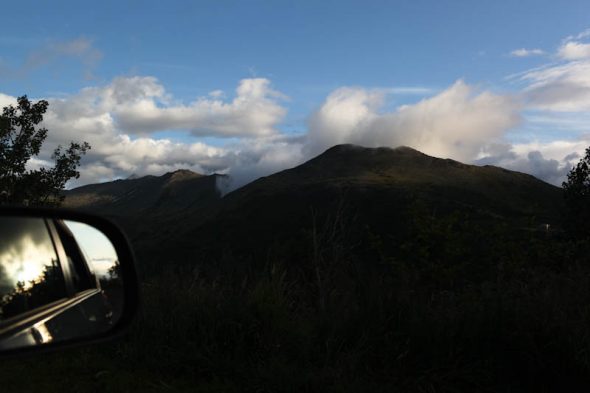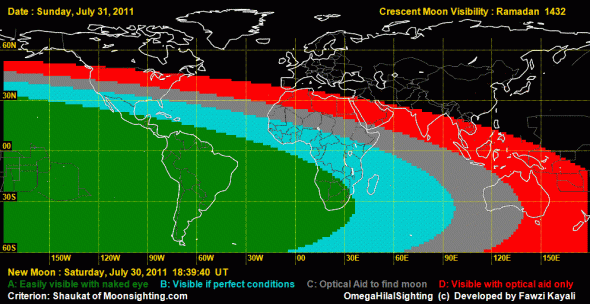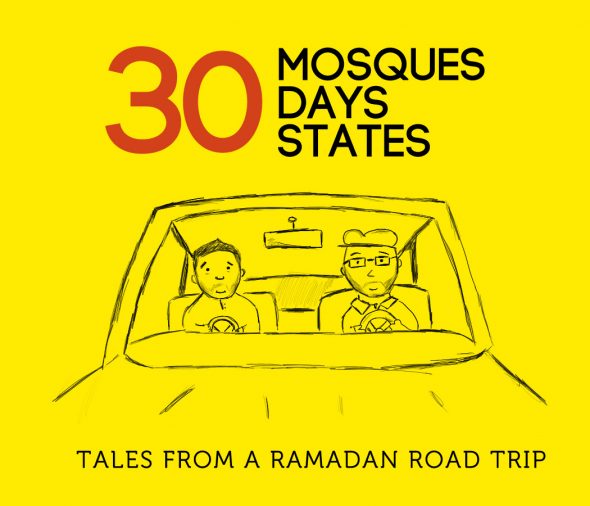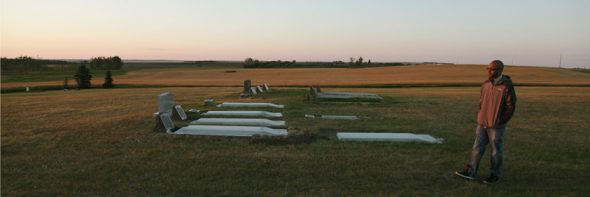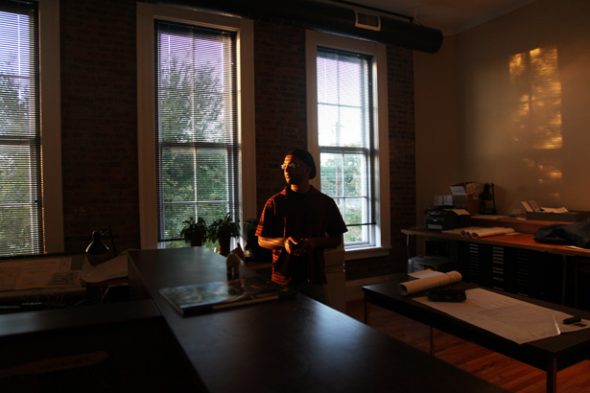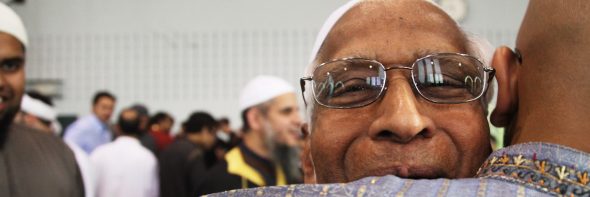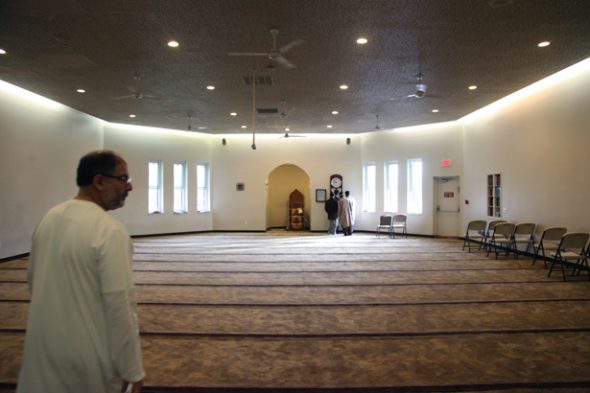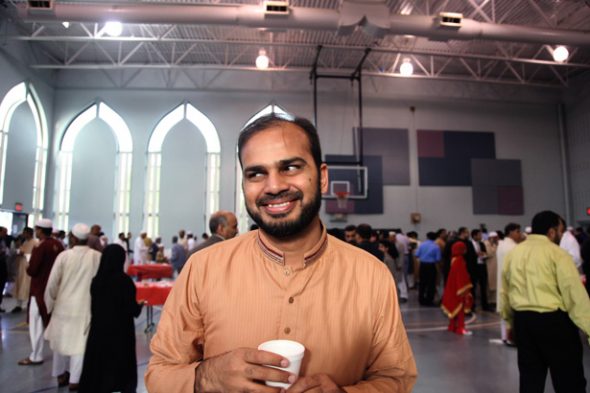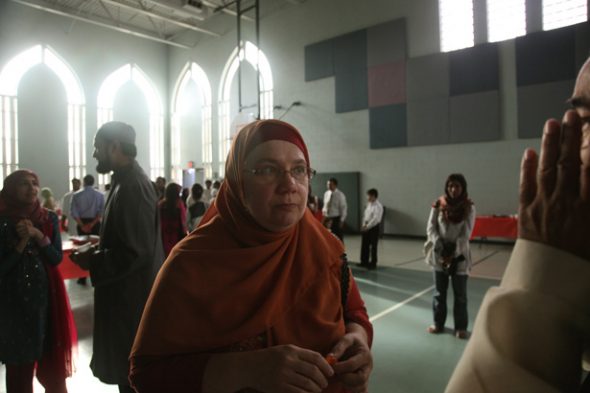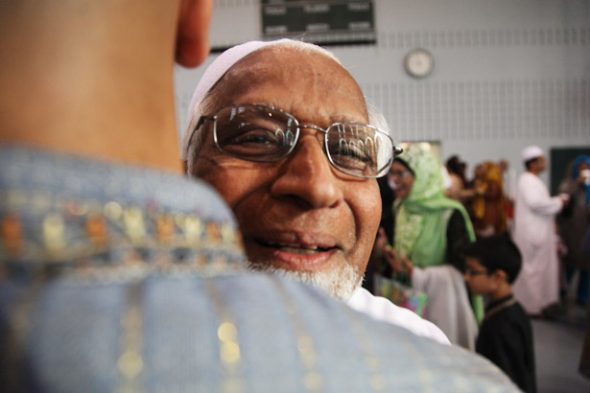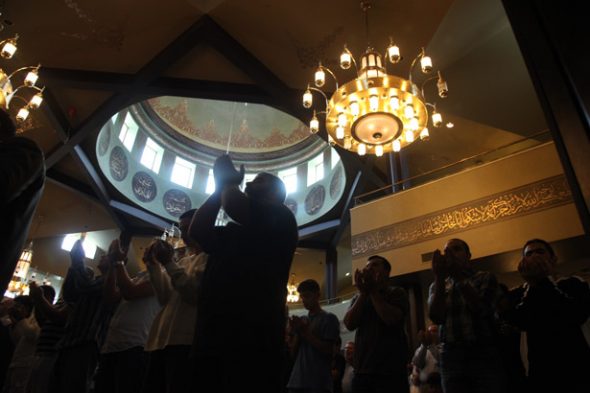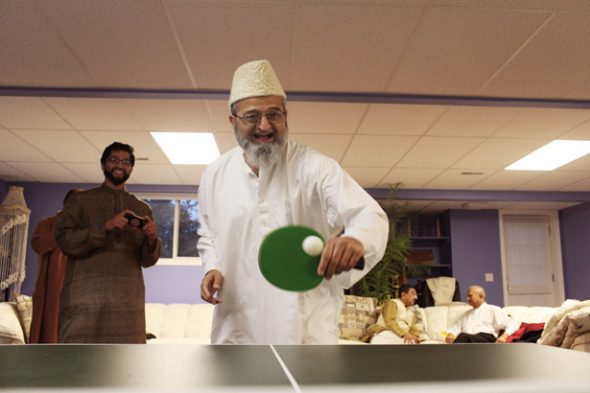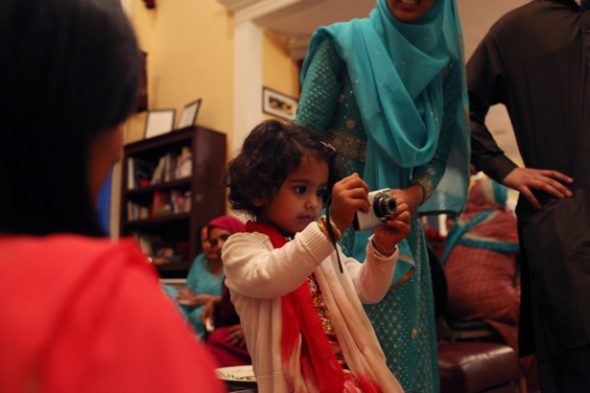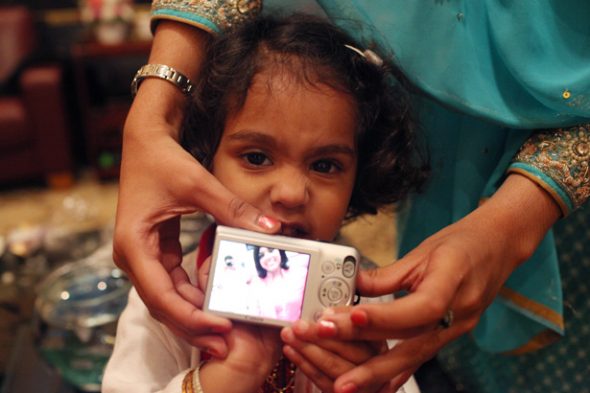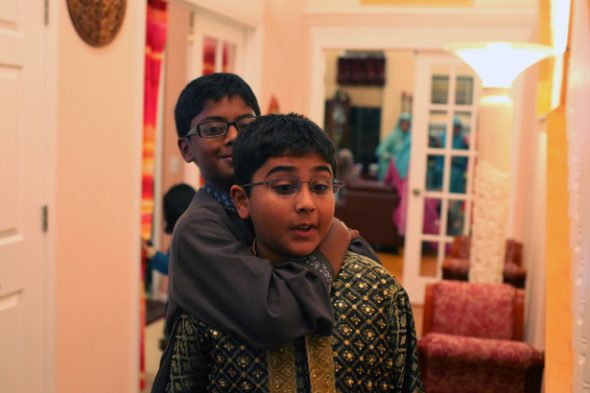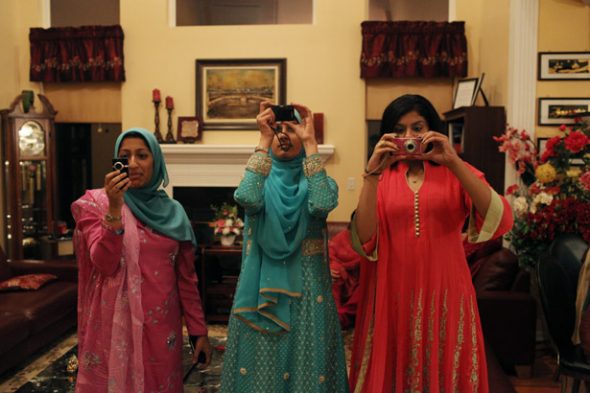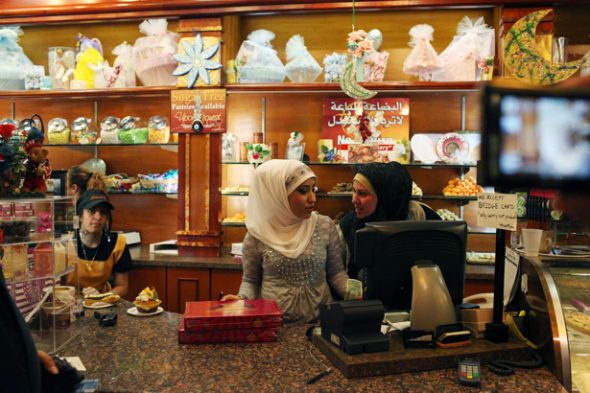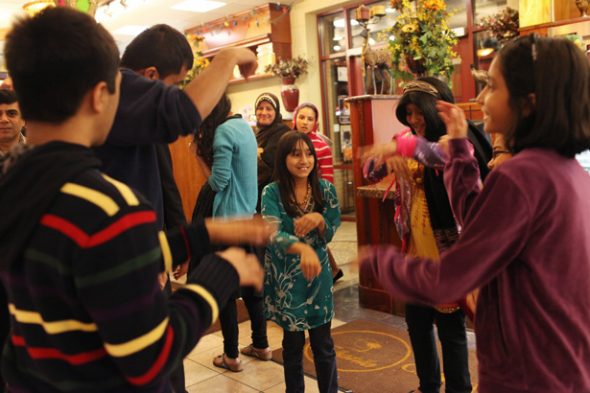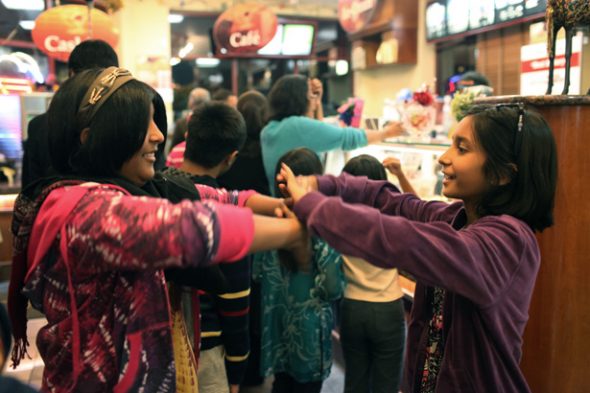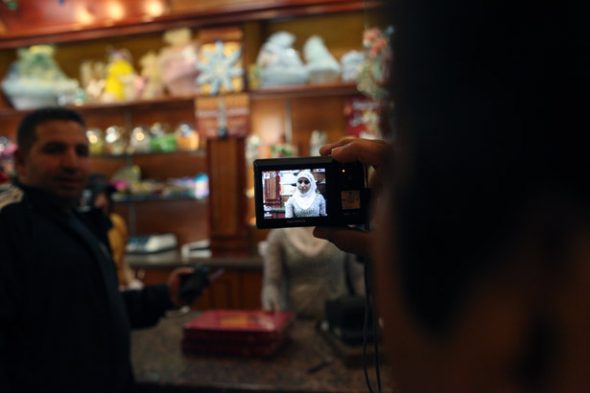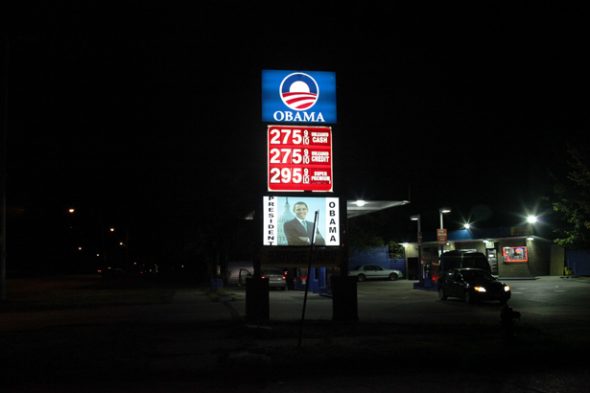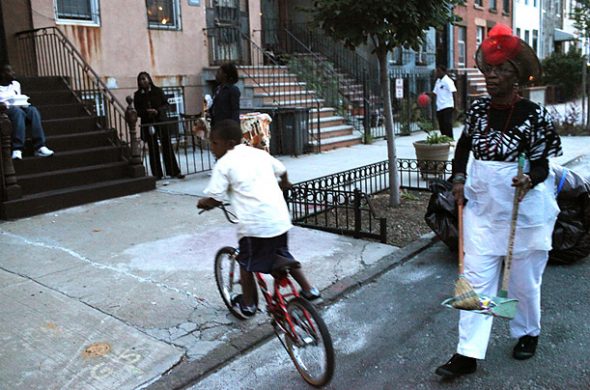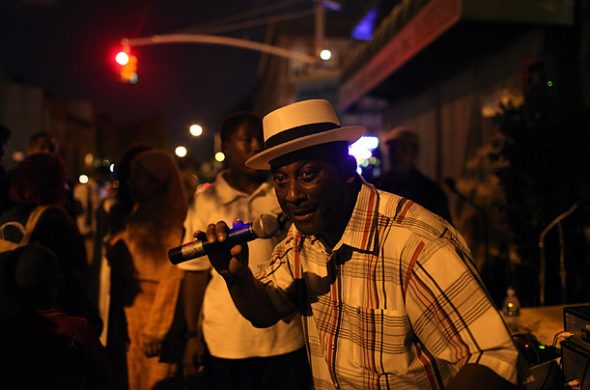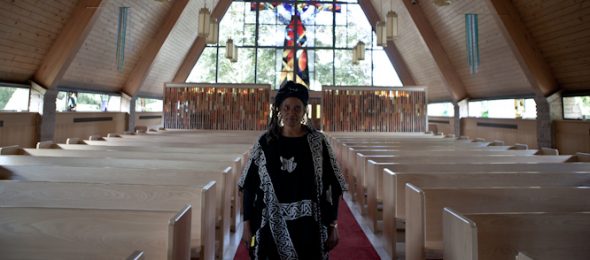
By Aman Ali
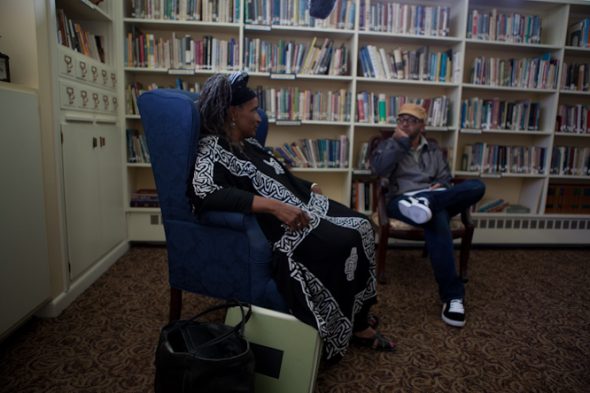
I spent well over an hour talking to Rev. Ann Holmes Redding about how she was kicked out of the Episcopalian church for believing in both Christianity and Islam. After an enlightening chat where we even sang a few Islamic and Christian songs together, I saved the most burning question I had for last.
“Be honest,” I said. “Did you decide to be Christian too so you can get around that whole ‘Muslim No-Pork’ thing?”
Yes, Ann Holmes Redding is an Episcopal priest and a devout Muslim. She prays five times a day and is fasting during Ramadan. On Sundays, she attends church and takes communion.
I’m sure everyone wants to know how on earth does her belief system work. When it comes to Jesus, Christians believe in the trinity and Muslim’s don’t. It’s one of the fundamental differences between Muslims and Christians so how does she reconcile that?
She gets that question A LOT and I didn’t want to do the same kind of interview just about every reporter does with her. But you can read about her specific views here. I wasn’t interested in debating her let alone do I ever feel like that’s what my role should be. Instead of me asking her what she believes, I was more interested in why she believes in it. What is the spiritual journey she’s taken on to get to this point and how have people responded to her?
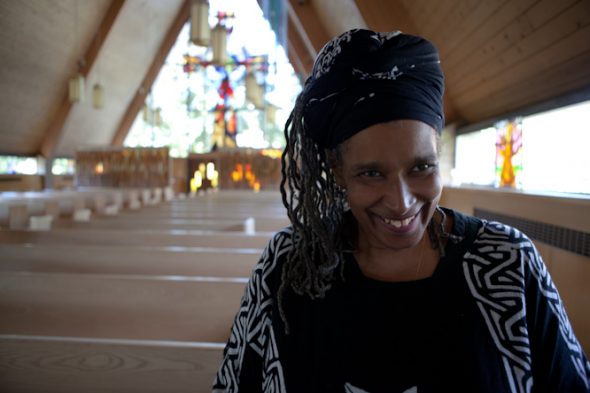
Ann is just as interesting on the outside as she is on the inside. She tucks her shiny silver dreadlocks underneath her black headwrap. Underneath her matching dress is a necklace holding Christian and Muslim pendants. She laughs in a set of short spurts to shrug off any tough question thrown at her. I sat next to her in St. Andrew’s Church in Seattle, talking about her life and even sharing a few songs together.
Ann was raised Episcopalian in Pennsylvania. She grew up in a fairly liberal town where she regularly met people of different faiths. She explored other religions at a young age and said there were times in her childhood where considered being Jewish, Greek Orthodox and even Quaker.
“I remember I’d tell my mother I found this really great new religion and she would sigh and say ‘Wait a month,’” she said with a bursted chuckle. “She got the clue there was something up with me and religion because I just seemed to be wired this way. I was always fascinated with God and liked anything that made me feel in touch with mystery.”
It was a natural journey, she said, for her to become a priest in the Episcopalian church. Islam didn’t play a major role in her life until 9/11. She was active in Seattle’s interfaith community and following the terrorist attacks, she started organizing Islam 101 classes to her congregation.
For the next few years, the classes became a regular thing at the church. Then in early 2006, she was thrust into a journey that would change her life forever. It began with her mother dying and a few weeks later she was sitting with a local Muslim leader who taught her a Sufi Islamic song. She said it wasn’t necessarily the song that did it for her, but she soon realized Islam was something that she was longing for.
“I knew that I needed to surrender before God,” she said. “The word Islam means surrender. I knew I had to become someone who is defined by surrender and whose posture in the world is surrender.”
She embraced Islam on March 25, 2006. Shortly after, she attended an interfaith event when she told someone what she had done.
“I saw this Muslim woman in one of those meetings and I said “I’m an Episcopal priest and I’m now a Muslim.” She remarkably enough told me “I didn’t have to choose.”
Word got around fast in the Seattle community that Ann was both a practicing Christian and Muslim, much to the dismay to the senior leaders of the clergy. In 2009, the church decided to “defrock” her, which formally removed her rights to be an ordained minister.
“It was heartbreaking,” she said as she paused between enduring several tears. “It still is.”
She said she became a priest because she felt God was calling her to do so. Now, all of a sudden, that role was taken away from her. I asked her if that ever made her question her calling in the first place.
“When I was ordained, I came from a parish at the time that was opposed to the ordination of women,” she said. “So I had dealt with opposition before. In a way I felt having come from that part of the church, that was one of the ways that got me prepared for what happened when I was defrocked.”
Many people in the church gave a sentimental scrap book she saved to this day. She says the gift is heartfelt, but given the circumstances she was given it, sometimes turning through the pages is difficult.
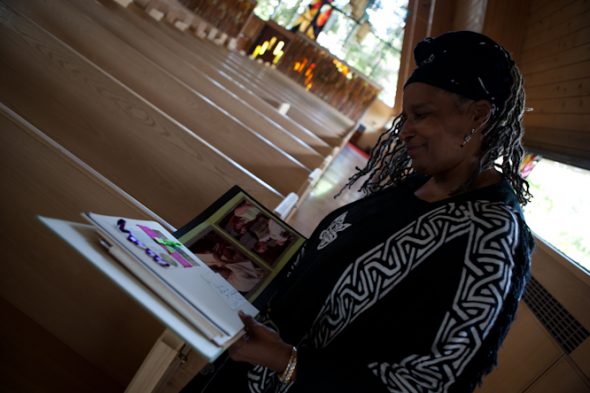
Today, she delivers guest sermons and lectures around the country. Ann spends most of her time these days talking about herself and what she believes. Since faith is extremely private in nature and focuses on a personal relationship with God, I asked her how she deals with being so public with her beliefs. Does she struggle with being humble when it seems like all she does for a living is talk about herself?
“I have no choice but to stay really close to my prayer rug,” she said. “My prayer is that I be of use. I want to be of use, as arrogant as it sounds, but I wanted to be of use to God. I figure if I keep my intentions straight and pray a lot, that’s all I can do. I don’t go out seeking this publicity.”
Since she’s both Christian and Muslim, I asked Ann which one she sees herself more as. There has to be moments where she feels like her beliefs clash with one another, right?
“It seems to me as I get older, my understanding of that unity (between Islam and Christianity) gets deeper,” she said. “The unity for God is the basis of unity of everything. If there is only one God, we are all so intimately connected with that God, no matter how human history, culture, politics and entertainment will portray that otherwise.”
Ann and I ended our conversation with one another by singing a few Christian and Muslim songs together. If anyone has seen me do karaoke knows I make Rebecca Black look like Aretha Franklin. But there was something about being in Ann’s presence that gave me no hesitation to sing along with her. Our brains might think differently when it comes to worshiping God, but for that short moment, we were on the same page sharing a moment singing God’s praise.
